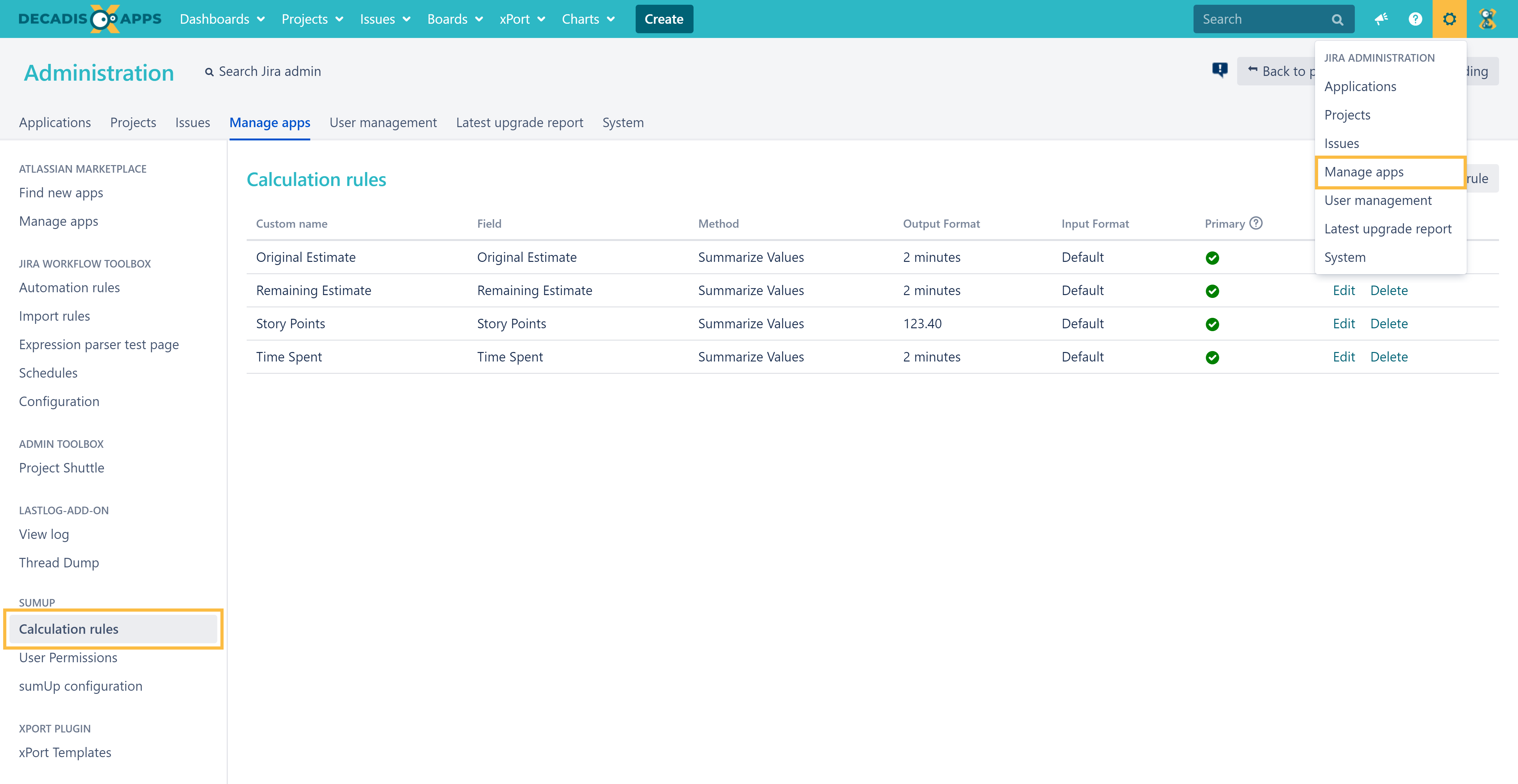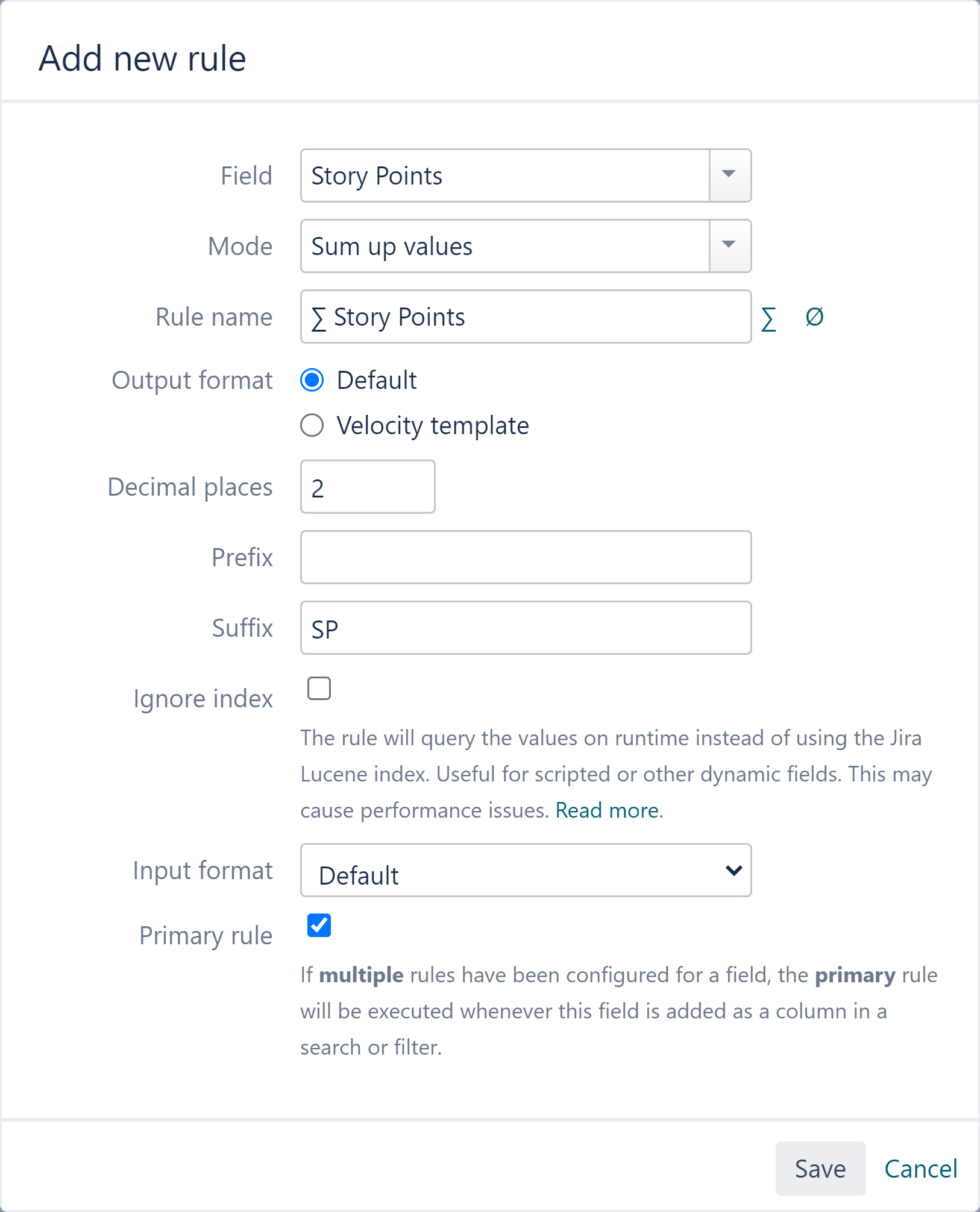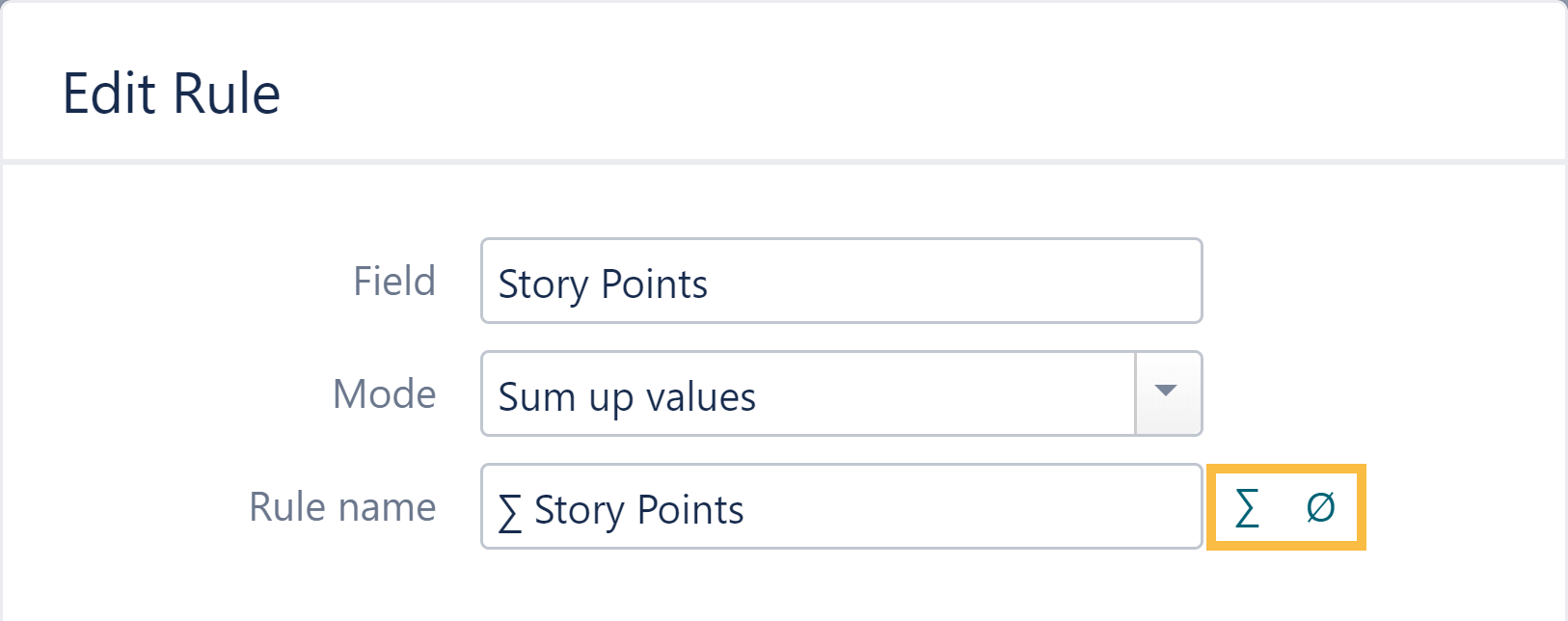On this page
Calculation rules are the entry point for every calculation within sumUp.
They define which values should be calculated in which way (sum, average) and how they should be displayed.
Why do I need calculation rules?
Calculation rules are used within sumUp to tell the app which values should be calculated. In addition, you can set the calculation method and several formatting options.
Create a new rule
To create a new calculation rule head over to Manage apps → sumUp calculation rules:
Hit the "Add new rule" button in the upper right corner to open the following pop-up menu:
Configuration options
If you still have questions, feel free to refer to our support team.


